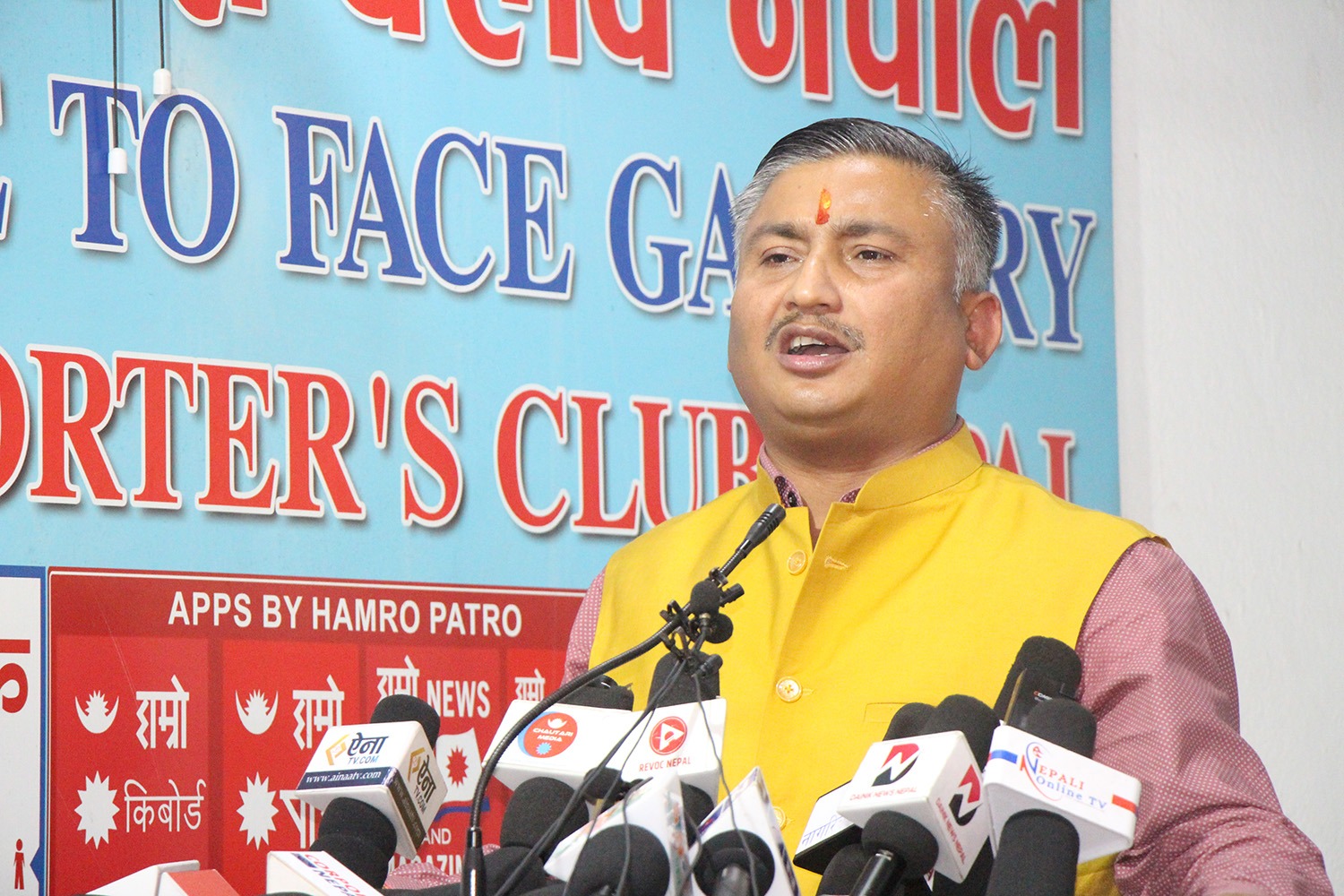Ahead of Prime Minister’s China Visit, Yadav Exposes China’s Pressure on Nepal

Nepal’s Prime Minister KP Sharma Oli is set to embark on an official visit to China from December 2 to December 5. This visit is viewed as a significant turning point in Nepal-China relations, with both nations aiming to strengthen long-term trade partnerships and infrastructure development. The primary agenda for this visit includes discussions on reopening major trade routes, expanding infrastructure projects, and advancing partnerships under the Belt and Road Initiative (BRI). However, there have been calls within Nepal for a balanced approach in handling relations with China.
This visit is expected to help Nepal make strategic decisions about its long-term relationship with China, particularly regarding key trade routes such as Kimathanka, Korala, and Hilsa. Reopening these borders could strengthen Nepal's position in regional trade networks. Additionally, discussions are anticipated on the Shigatse-Kerung-Kathmandu railway project, which could not only streamline trade with China but also positively impact Nepal's tourism and other regional economic activities.
Nepal’s Participation in BRI and National Sovereignty
In anticipation of Prime Minister Oli’s visit, Binay Yadav, president of the National Unity Campaign, issued a press release cautioning against the potential risks of Nepal's involvement in the BRI. Yadav stated, “Nepal must protect its long-term national interests while collaborating with China. Italy and Brazil conducted in-depth evaluations before joining BRI, and Nepal should learn from their experiences.” Yadav further emphasized that such significant projects should be approved by a two-thirds majority in Parliament and that the government should not make unilateral decisions.
Nepal's involvement in the BRI could lead to complex challenges related to long-term national sovereignty and economic dependence. While the BRI strengthens trade ties with China, it also raises concerns about geopolitical pressures on Nepal. Therefore, adopting a comprehensive, long-term approach is crucial as Nepal navigates this relationship.
Lessons from International Experiences
As Nepal considers involvement in BRI, the caution exercised by other nations can serve as valuable guidance. For instance, Italy conducted an extensive analysis of the potential impacts on its economy and geopolitical balance before joining the BRI. Brazil, on the other hand, devised a strategic approach to safeguard its economic independence while evaluating long-term risks. These examples highlight the importance of prudence when engaging with China on infrastructure and economic projects, and Nepal can adopt a balanced approach based on these precedents.
BRI projects offer long-term benefits, but they often come with a trade-off, particularly for smaller and developing nations that face the risk of economic dependence and threats to sovereignty. While enhancing economic collaboration with China, Nepal should be mindful of the potential risks involved.
Charting a New Course with Prime Minister Oli’s Visit
Prime Minister Oli’s upcoming visit to China presents a chance to guide Nepal-China relations toward a strategic long-term partnership. However, it is essential for this partnership to prioritize national interests and sovereignty. While strengthening ties with China, Nepal must consider its broader international relationships and aim to maintain a balance.
In his press release, Binay Yadav stated that any long-term cooperation, particularly in significant projects, should safeguard national sovereignty and economic balance. Projects of this scale should be passed by a two-thirds majority in Parliament to ensure the support and involvement of all citizens.
The Need for a Balanced Approach for Nepal
Given Nepal’s unique geopolitical position, a balanced approach can pave the way for long-term prosperity and stability. While deepening ties with China, Nepal must also be careful to sustain relations with its other neighboring countries. Prioritizing multilateral relationships over dependence on a single power could prove to be a wiser strategy in the long run.
Prime Minister Oli’s visit has the potential to open up new economic opportunities for Nepal. However, it is crucial that any decisions made prioritize long-term benefits and national interests. This visit could inspire Nepali citizens and policymakers alike to reflect more seriously on the nation’s relationship with China.
Press Release
Prime Minister Oli will be visiting China soon to strengthen Nepal-China relations. However, National Unity Campaign President Binay Yadav has emphasized the need for Nepal to consider its sovereignty and long-term interests before committing to BRI projects. Yadav stated, “Nepal must advance in its economic cooperation with a focus on protecting national interests. Major decisions without parliamentary approval would not be in the best interest of the nation.”
In this way, Prime Minister Oli’s visit could elevate Nepal-China relations to new heights, but this partnership must be rooted in a balanced and long-term perspective. To protect Nepal's identity as a strong, independent nation, the government must carefully evaluate each decision and make choices that benefit the country’s future.




![From Kathmandu to the World: How Excel Students Are Winning Big [Admission Open]](https://nepalaaja.com/img/70194/medium/excel-college-info-eng-nep-2342.jpg)
